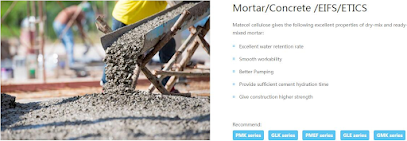Is vinyl flooring better than laminate?
The decision between vinyl flooring and laminate flooring depends on your specific needs, preferences, and the characteristics of the space you’re considering for installation. Both vinyl and laminate have their own advantages and disadvantages. Here’s a comparison to help you make an informed decision:
Vinyl Flooring:
Durability: Vinyl flooring is known for its durability, making it a good choice for high-traffic areas or homes with pets and children.
Water Resistance: Vinyl is inherently water-resistant, making it suitable for areas prone to moisture, such as bathrooms, kitchens, and basements.
Installation: Vinyl flooring is relatively easy to install, with options for glue-down, click-lock, or peel-and-stick installation methods.
Variety: Vinyl comes in a wide range of designs, including patterns that mimic natural materials like wood and stone, as well as various colors and styles.
Comfort: Vinyl tends to be softer and warmer underfoot compared to laminate.

Laminate Flooring:
Aesthetics: Laminate flooring can also mimic the appearance of natural materials like wood or stone, offering a realistic look at a more affordable price.
Installation: Laminate is generally easy to install using a click-lock system, making it a popular choice for DIY projects.
Durability: While laminate is durable, it can be more susceptible to moisture damage compared to vinyl. Some types of laminate may swell or warp if exposed to water.
Maintenance: Laminate is relatively easy to clean and maintain, but you should take care to avoid excessive water exposure.
Cost: Laminate flooring is often less expensive than high-end vinyl options, making it a budget-friendly choice.
In summary, if you're looking for a flooring option that's highly water-resistant and more suitable for potentially wet areas, such as bathrooms and kitchens, vinyl might be the better choice. On the other hand, if you’re seeking a cost-effective option with a wide variety of designs that’s relatively easy to install, laminate flooring could be a good fit. Consider your specific needs, preferences, and the conditions of the space where the flooring will be installed before making a decision.
Vinyl Flooring:
Durability: Vinyl flooring is known for its durability, making it a good choice for high-traffic areas or homes with pets and children.
Water Resistance: Vinyl is inherently water-resistant, making it suitable for areas prone to moisture, such as bathrooms, kitchens, and basements.
Installation: Vinyl flooring is relatively easy to install, with options for glue-down, click-lock, or peel-and-stick installation methods.
Variety: Vinyl comes in a wide range of designs, including patterns that mimic natural materials like wood and stone, as well as various colors and styles.
Comfort: Vinyl tends to be softer and warmer underfoot compared to laminate.

Laminate Flooring:
Aesthetics: Laminate flooring can also mimic the appearance of natural materials like wood or stone, offering a realistic look at a more affordable price.
Installation: Laminate is generally easy to install using a click-lock system, making it a popular choice for DIY projects.
Durability: While laminate is durable, it can be more susceptible to moisture damage compared to vinyl. Some types of laminate may swell or warp if exposed to water.
Maintenance: Laminate is relatively easy to clean and maintain, but you should take care to avoid excessive water exposure.
Cost: Laminate flooring is often less expensive than high-end vinyl options, making it a budget-friendly choice.
In summary, if you're looking for a flooring option that's highly water-resistant and more suitable for potentially wet areas, such as bathrooms and kitchens, vinyl might be the better choice. On the other hand, if you’re seeking a cost-effective option with a wide variety of designs that’s relatively easy to install, laminate flooring could be a good fit. Consider your specific needs, preferences, and the conditions of the space where the flooring will be installed before making a decision.

评论
发表评论